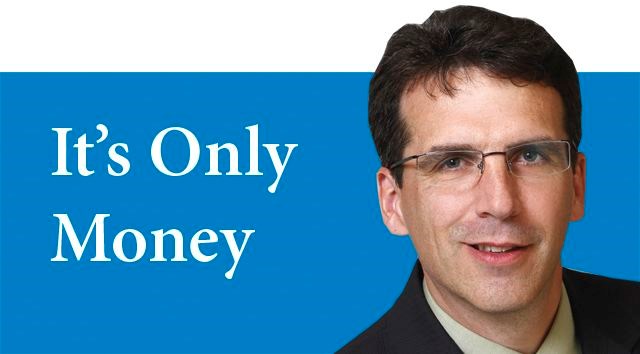With the leader of the free world behaving like a spoiled cartoonish bully who just crawled out of a steaming pond of toxic orange juice, it shouldn't surprise us that some of people have a bad opinion of capitalism.
The term has become derisive. Millions of (mostly young) people - whose idea of in-depth economic analysis is to watch a three-minute Buzzfeed video all the way to the end - are clamoring to purchase Che Guevara T-shirts. Doing so they unwittingly celebrate a ruthless communist prison camp executioner while contributing to Amazon's bottom line. They think they are "giving it to The Man" but they're just giving $20 to Jeff Bezos.
The impulse, I believe, is born of an honest desire to watch out for the little guy, which is a good starting place. But what system serves the people better - socialism or capitalism? The answer is made nearly invisible by its being everywhere. A friend of mine says if you give kids a ball and leave them alone in the grass... rugby happens. Similarly, capitalism isn't planned. It just is.
Why is Prince George here? Did city hall spring up organically and then decide to have a sawmill? Of course not. Dreamers put their own money and time at risk. They innovated and worked inhumanly long hours. Some of them fell flat on their faces, others got rich, but all of them hired a few guys along the way - with not so much as a hint of an economic planning department.
But let's examine some actual socialist experiments, measured by the degree to which the central government has seized control of the economy.
China: For over 35 years, a totalitarian communist regime, China's economy fluttered and literally starved to death millions of people until it began to allow market reforms (capitalism) to flourish. Today, Sino might as well stand for "Socialist in Name Only." In 2015 sales of iPhones in China surpassed sales in the U.S. The image of the peasant farmer has vanished, and the Chinese consumer is now all the rage to economic forecasters.
Russia: Similar to China, millions starved to death under the brutal communist regime. Private enterprise has been allowed since the Iron Curtain crumbled in 1990 under the weight of more than a dozen stacks of failed five-year economic plans. The four-hour bread lines are gone, but Putin isn't.
North Korea: Millions starved to death (I see a pattern here). In 1953, shortly after hostilities between the two Koreas quieted, both nations shared roughly the same GDP. In 2015, an average South Korean generated 27 times the wealth of its communist northern neighbour. Ouch. And the Northern guy is really weird. He thinks Dennis Rodman is an Avenger.
Cuba: In 1985, after 26 years of subsidies, Russia withdrew support for Cuba, causing a tailspin referred to as the Special Period.
And was it ever special. Food shortages were widespread and residents reportedly resorted to, among other things, eating domestic cats (and now I have my daughter's attention). Later the government actually spun the health benefits of weight loss resulting from this dire food crisis. (I am not making this up).
The systemic downturn was remedied by... you guessed it, market reforms (capitalism). This worked so well that it frightened the government, who recently retrenched back to more socialist ideals. According to The Economist, most of the 600,000 "self-employed workers" (capitalists) can carry on as before, but no new ones. The government mistrusts them, and their prosperity provokes envy among poorer Cubans. Their independent-mindedness could one day become dissent. The government "fights wealth, not poverty," laments one entrepreneur.
Venezuela: Once a growth story, this nation sits on the largest oil reserves in the world. But a "centre-left" supposedly egalitarian movement seized control and managed the once flourishing oil business back in to the ground (there's so much fun in a pun, right Justin?). This made the country today a starving, dirt poor net importer of oil.
What about "The Nordic Model?"
According to The Foundation for Economic Education: "while it is true that the Scandinavian countries provide things like a generous social safety net and universal healthcare, an extensive welfare state is not the same thing as socialism. What (people) confuse as socialism is actually social democracy, a system in which the government aims to promote the public welfare through heavy taxation and spending, within the framework of a capitalist economy. This is what the Scandinavians practice."
But even Sweden's own Olle Wstberg, the former Consul-General to New York, said: "In many fields, we have more private ownership compared to other European countries, and to America. About 80 per cent of all new schools are privately run, as are the railroads and the subway system."
The Data - Who Really Feeds the Poor?
It is to be human to help the poor. And aside from the fact that people are willing to risk getting shot trying to escape the socialist dream for something to eat, the data is indisputable; foreign aid contributing nations are a who's who list of capitalists, while socialists find themselves on the recipient list. It should be obvious by now that Karl Marx's labour, land and capital are not the only, nor even the primary means, of wealth creation. Dreamers are.
Mark Ryan is an investment advisor with RBC Dominion Securities Inc. (Member-Canadian Investor Protection Fund), and these are Ryan's views, and not those of RBC Dominion Securities. This article is for information purposes only. Please consult with a professional advisor before taking any action based on information in this article. Ryan can be reached at mark.ryan@rbc.com.



